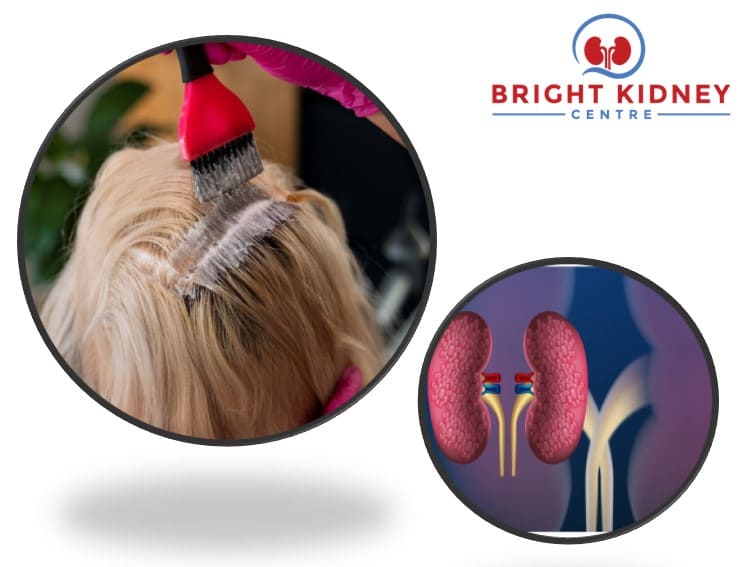Hair dye and kidney disease
Hair dye is a popular cosmetic product used by millions of people around the world to change the color of their hair or cover up gray hair
The majority of people are unaware of the side effects of hair dye. It is emerging as an important health concern across the globe, considering the potential risk it poses to kidneys. However, intervention at the right time can improve the outcomes.
More importantly: Improving awareness of hair dye toxicity will lead to taking proper precautions and avoiding hazardous side effects.
What are the potential risks or side effects of using hair dye on the kidneys?
Hair dye contains chemicals that can potentially be harmful to the kidneys if used in excessive amounts or for prolonged periods. The main chemicals of concern are called para-phenylenediamines (PPDs) and amino phenols.
These chemicals are responsible for the color of hair dye and are known to be toxic to the kidneys.
Hair dye and kidney disease: When these chemicals come into contact with the skin, they can be absorbed into the bloodstream and ultimately reach the kidneys. Once in the kidneys, they can cause damage to the cells and tissues, leading to kidney dysfunction. This can manifest as symptoms such as decreased urine output, swelling in the legs or ankles, fatigue, and shortness of breath.
Some people may develop an allergic reaction to the chemicals in hair dye, which can cause allergic interstitial nephritis. This is an inflammation of the kidney tissue that can impair its function.
Furthermore, prolonged and excessive use of hair dye can lead to the accumulation of toxins in the body. This can overload the kidneys, which are responsible for filtering and removing waste products from the bloodstream. Over time, this can lead to chronic kidney disease, in which the kidneys gradually lose their ability to function properly.
It is important to note that the risk of kidney damage from hair dye is relatively low, especially when used as directed and in moderation. However, individuals with pre-existing kidney conditions or a history of kidney disease should exercise caution when using hair dye and consult with their nephrologist.
Unpublished Observational Study of Hair Dye Poisoning in Hyderabad
Some people take hair dye orally (by mouth) as a method of self-harm.
According to an unpublished observational study of hair dye poisoning in Hyderabad, India – presented at the 38th Annual Conference of the Indian Society of Nephrology, acute renal failure developed in almost 100% of the patients following the ingestion of hair dye.
In a 10-year study involving 150 patients in Sudan who were presented with PPD poisoning, 60% had reported acute renal failure requiring dialysis [2].
It is important to consider the following steps when using hair dye to reduce the potential risk of kidney problems:
Choose hair dyes that are natural like henna and ammonia-free dyes. These products are free of chemicals such as ammonia and peroxide, which may have potential negative effects on the kidneys.
Perform a patch test before applying the dye to your scalp. This involves applying a small amount of the dye to a small area of your skin and waiting for any allergic reactions or skin irritation. If any adverse reactions occur, it is best to avoid using the product.
Wear protective gloves, avoid contact with the eyes and mouth, and properly rinsing the dye off after the recommended processing time.
Limit the frequency of hair dye usage. While occasional use of hair dye is generally considered safe, excessive and prolonged exposure to hair dyes may increase the risk of adverse effects.
Drinking an adequate amount of water and maintaining a balanced diet can help support kidney health and overall well-being.
Therefore, if you love your kidneys and your life is precious to you, be aware of hair dye and follow all the instructions and precautions while using it.
Intervention at the right time has been shown to improve the outcome. If you want to know any potential risks, then discuss those with your nephrologist.
If any concerns arise, it is always best to consult a nephrologist for personalized advice.

Leave a Reply